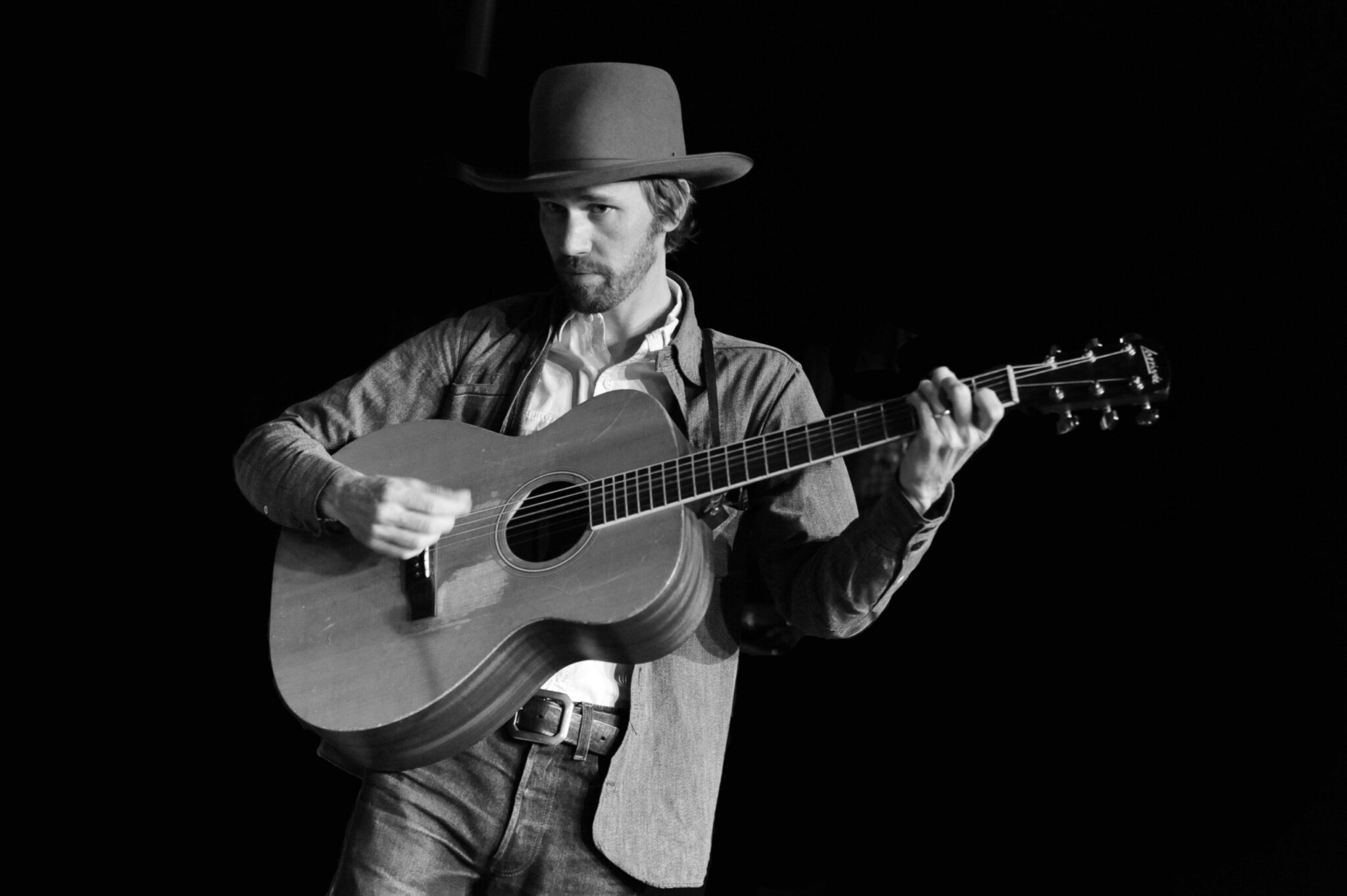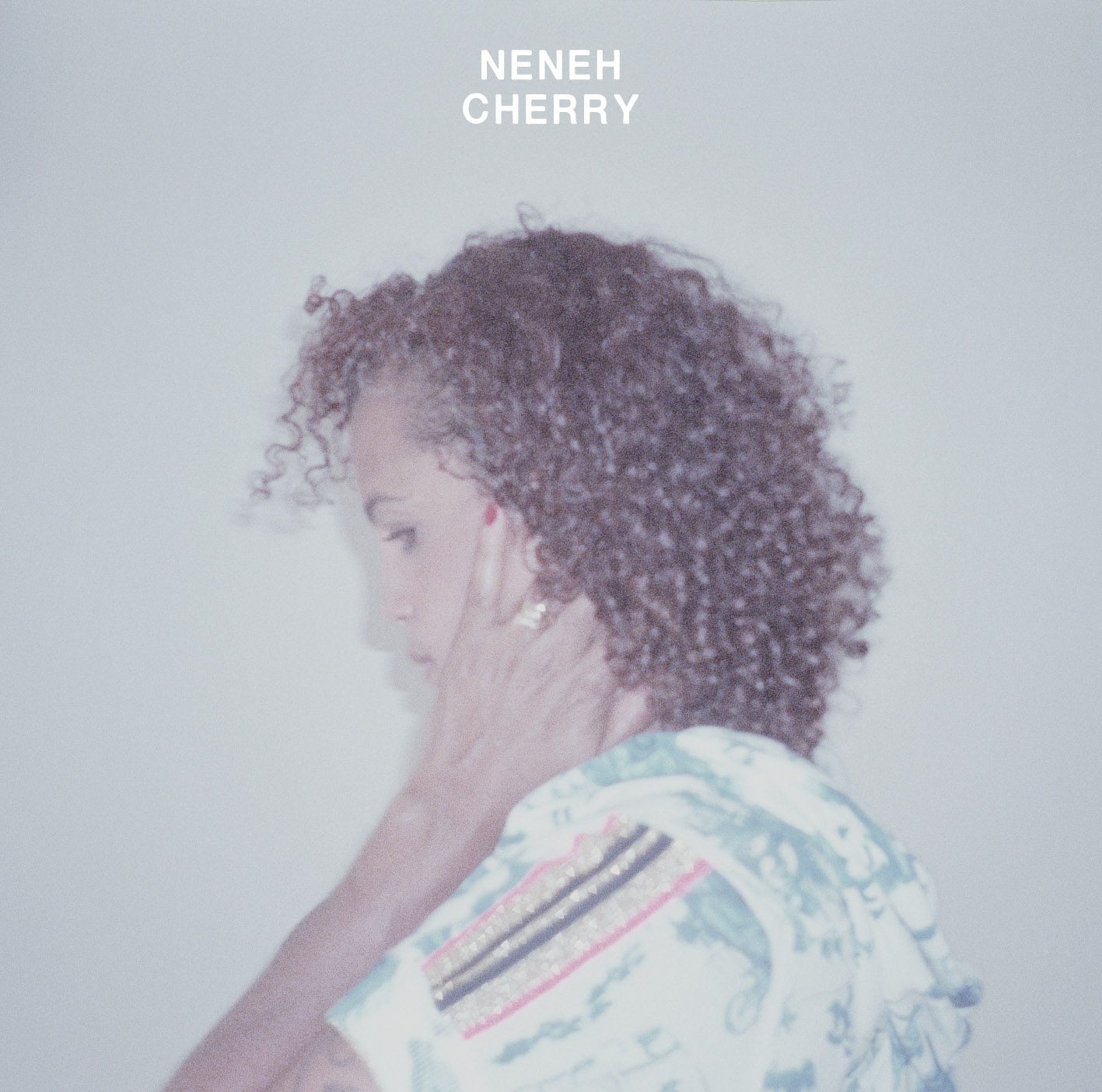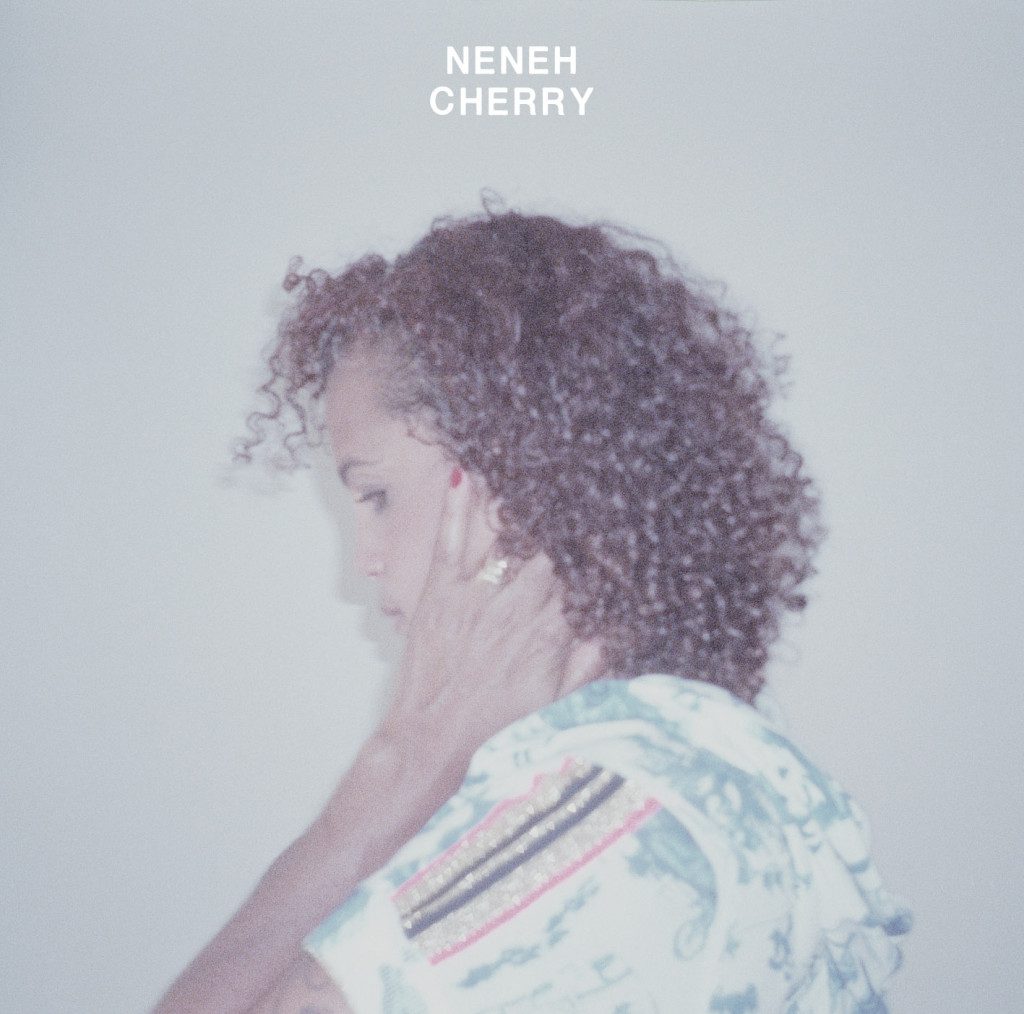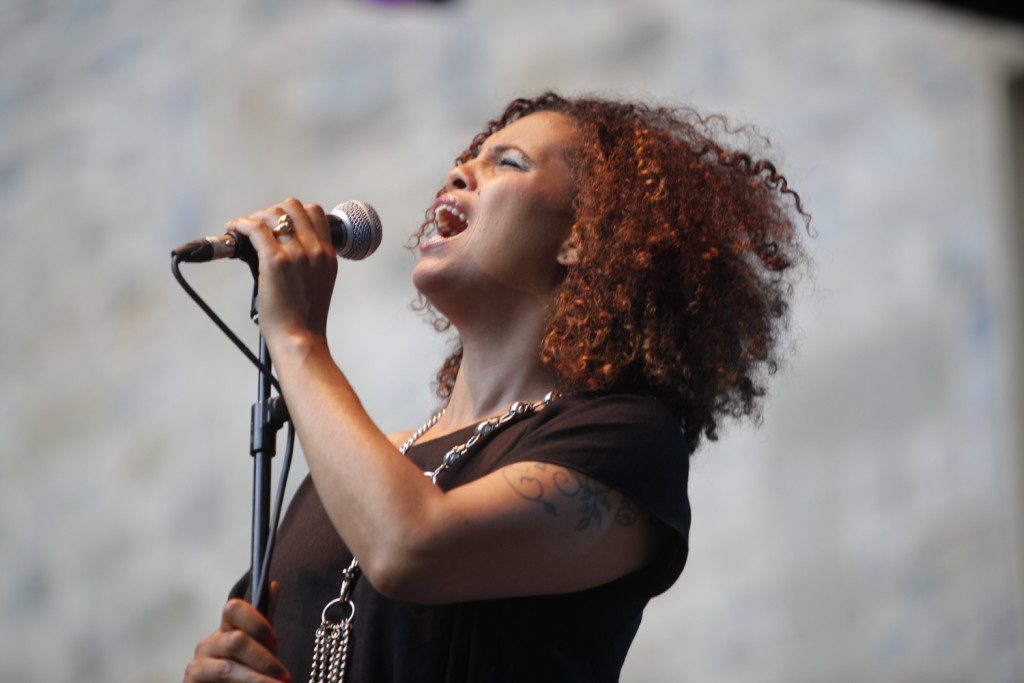INTERVIEW: Willie Watson

Willie Watson recorded his debut solo effort, the straightforwardly-titled Folk Singer Vol. 1, over the course of two days at Woodland Sound Studios, the studio owned by Gillian Welch in Nashville, TN. In those sessions, he played whichever songs came to mind: the collection features some well-known numbers like “Midnight Special,” along with rarer inclusions such as “Kitty Puss” and “Mexican Cowboy.” The track list has sprawling origins, spanning blues, folk, and rock and roll as well as decades. Collaged together by producer David Rawlings, Folk Singer ambles through its ten tracks with the lowlight unadornedness of a late-night impromptu performance.
And in a way, it is. When Watson split from Old Crow Medicine Show, which he’d co-founded and been part of for a decade and a half, he wasn’t sure where he would end up next. Though he didn’t start out with the goal of making a record of traditional songs, it does seem like kind of a neat return to basics: after a long run with a band that helped define contemporary folk music, Watson’s solo career so far has been an opportunity to revel in the old songs that made him love old-time folk music in the first place.
A couple weeks ago, I got a chance to chat with Watson about his new album, the traditional songs on it, and how he came to love old-time music. Read on for more:
AF: What made you decide to put out a solo album after you left Old Crow, as opposed to forming another band?
WW: You know, it just sort of happened that way. I’ve been singing old songs–folk songs, traditional songs, whatever you wanna call them–for years. Once I was on my own, I wasn’t sure what my next move was–if I was going to have another band, or try to write a bunch of songs. At first, I did start writing songs, but I don’t think I was satisfied with what I was writing. I was starting to do some solo shows, and I had a few songs I’d written, and I would do a mix of those with old traditional songs, at those early shows. I was a lot happier doing those old folk songs, and I think the crowd was a lot happier, too. I thought those were great songs that people should be hearing, and that I wanted to be singing.
AF: You’re in a position to introduce listeners to those old songs for the first time, in many cases. How cool is that?
WW: Totally cool, and I’m happy if I can be that guy. Alternately, if they heard where they came from, they might not want to listen to me anymore. I would much rather put on Leadbelly singing “Midnight Special” than listen to me. It’s surprising, a lot of people might not even realize that these are old songs. I think if they have the record, Folk Singer, and they read the reviews and write-ups, they’ll get it–but I’ve played shows and had people think I wrote all those songs.
AF: You grew up in upstate New York, right? What was the musical community like there?
WW: Around Ithaca and Tompkins County–which is right next to Schuyler County, where I’m from–there’s a lot of old-time fiddle music. There was a banjo player named Richie Stearns and all those guys from Donna The Buffalo, they’re old-time players. There would be a weekly old-time jam every week up there. So I was exposed to that first hand, being around the scene and the music every week. Richie Stearns had a band called The Horse Flies, and they were a mix of old-time fiddle music with eighties pop. They had a drum set and they all plugged in, and Richie Stearns was playing clawhammer banjo. Judy Hyman played the fiddle and would dance around the stage, doing this headbang-y thing with her eyes rolling back in her head. I was about thirteen, and I would see this stuff and thought it was the coolest thing I’d ever seen. It was dance music, and it really moved me in a big way. That was my introduction to old-time music. I knew it wasn’t bluegrass, this old-timey thing The Horse Flies were doing. It was something a little bit different, and it really stood out. I was already listening to Neil Young and Bob Dylan. Of course, at the same time I was also listening to Nirvana, too. They did that Unplugged thing, where he sings the Leadbelly song [fusion_builder_container hundred_percent=”yes” overflow=”visible”][fusion_builder_row][fusion_builder_column type=”1_1″ background_position=”left top” background_color=”” border_size=”” border_color=”” border_style=”solid” spacing=”yes” background_image=”” background_repeat=”no-repeat” padding=”” margin_top=”0px” margin_bottom=”0px” class=”” id=”” animation_type=”” animation_speed=”0.3″ animation_direction=”left” hide_on_mobile=”no” center_content=”no” min_height=”none”][“In The Pines/Where Did You Sleep Last Night”]. I knew my dad had a Leadbelly record in the basement, and I went and got it out. Really, that changed everything for me right there. It was all coming together at the same time.
AF: Were there other kids excited by old-time and interested in playing it?
WW: Yeah. I started a band pretty quick. A lot of the old-time players had kids my age, so they all had guitars. We started a band called The Funnest Game that was kind of the same thing–clawhammer banjo, electric guitar, drums. People liked that we were young and we were playing this stuff, so we started playing shows at clubs when we were about fifteen or sixteen. And they’d pay us. Which was nice! It was like, “Holy cow! This could be a job?!” So I quickly dropped out of high school when I was sixteen.
AF: Did you meet up with Old Crow Medicine Show pretty quickly after that?
WW: It was a few years. I had that first band, and then Ketch [Secor] moved to Ithaca when…I must’ve been seventeen or eighteen. Richie Stearns knew Ketch from the festival scene and he introduced us. Ketch moved up [to Ithaca] and then Critter [Fuqua] moved up a bit later. When The Funnest Game was about to break up, Ketch and Critter’s band had just broken up. They opened together for The Funnest Game and sang together, harmonized, did their duo thing. I was floored. As soon as they started singing, I immediately really badly wanted to sing with them. And so we made that happen.
AF: Looking back on it now, how do you feel about having been a part of that band?
WW: What can I say? It was everything to me, to us. That band was my whole life for almost fifteen years. I wouldn’t change anything. We just kind of grew apart. In the early days we played a lot of old music and not as many songs, although we were always writing. I don’t have any regrets, but I’m really happy that I’m where I’m at now. I’m playing the music I want to play, and it’s real simple, and I don’t have a big light show–I’m in a good place with that.
AF: Let’s talk about how Folk Singer became the collection that it is. Can you tell me the story of how one or two of the songs came to be included on the album?
WW: Anything in particular?
AF: How about ‘James Alley Blues?’
WW: Okay, yeah. That’s a Richard “Rabbit” Brown song, and I don’t know too much of what he’s done, I just know that song, and also he does this great version of the Titanic story. He definitely plays ‘James Alley Blues’ different [than I do], it’s more bluesy, and he’s got all that finger picking guitar stuff. I heard it and I knew my voice would be right for it, but I had to find a different way to play guitar, because I don’t really play blues like that. That open-tuning blues stuff. I knew I really wanted to do that song because it really reached out to me. I related to what he was saying, and what the song was about really hit home for me. So I just had to find a different way to play guitar, you know, find a way that the song could come out of me.
AF: Were there any notable exclusions? Songs you were sure you wanted on the album, but that ultimately didn’t wind up making it?
WW: We recorded over twenty five songs for this album. There’s still a whole bunch of stuff in the can. That’s where Dave [Rawlings] comes in. The idea was just to get in there and sing whatever was rolling around in my head. I had a little list of songs. Then Dave would say, “Okay, that’s great, but do you have anything in the key of C?” Some songs were totally off the cuff, and yeah, some songs didn’t make the cut. Like “Kitty Puss,” that song wasn’t supposed to be on there. When I flew to Nashville to record the sessions, I was listening to that on the plane before I landed. I’d never played it before. I got into the studio and they were adjusting the sound, and the guy was like, “play something,” so I just played “Kitty Puss.” That was the first time I played the song, so I remembered what words I could. I kinda rearranged the words, I think, just because I didn’t know exactly how the guy did it on the record. He recorded in the early twenties, before there were electronic microphones. Back then they were literally singing into a funnel. It was just him and a banjo, and he’d sing a lot of children’s songs and novelty songs. I’d been listening to it for a while. I didn’t expect it to be on the record, it just came out really good.
A great big thank you to Willie Watson for talking to us! Folk Singer Vol. 1 will be out on May 6th, and you can pre-order your digital or physical copy here. Watch Watson perform the first track, the classic “Midnight Special,” below:




